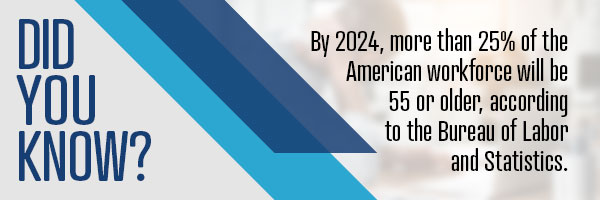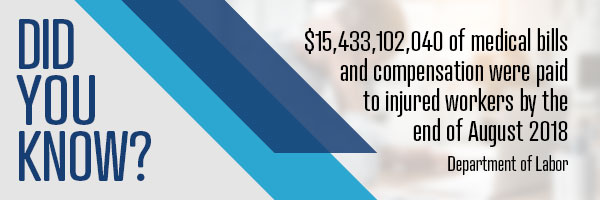Have You Been Injured on the Job?
Bluestein Attorneys Can Help with Workers’ Compensation Claims
If you’ve suffered a workplace injury or illness, you may be entitled to weekly compensation for the time you’re out of work, and to help make ends meet and pay for required medical treatment. When you’re searching for Workers’ Compensation lawyers in South Carolina, you deserve legal representation dedicated to fighting for your individual rights.
To request your FREE Workers’ Compensation consultation, simply fill out the form or read on for more information on Workers’ Compensation and what South Carolina Workers’ Compensation laws mean for you.
In 2016, 32,000 workers in South Carolina were reported injured on the job, according to the Bureau of Labor Statistics.
Video Playlist: Workers’ Compensation Q&A
Bluestein Attorneys represents injured workers and their families across South Carolina. In addition to our experience in the area of Workers’ Compensation, we advocate for injured workers on matters involving changes in Workers’ Compensation laws and regulations.
While Workers’ Compensation laws apply to a vast majority of workplaces, many employees know little about how Workers’ Compensation works, why we have Workers’ Compensation laws, and what to do if they are injured or become ill on the job.
South Carolina has a workplace injury rate of 2.5 nonfatal injuries or illnesses per 100 workers. While this puts us below the national average, it still means there are many injured workers in South Carolina who may need legal representation to ensure a fair outcome for their Workers’ Compensation case.
We are dedicated to fighting for the rights of those who fall victim to on-the-job injury or illness, and the first step is giving you the information you need to make an informed decision about your Workmans’ Compensation lawyer.
What is Workers’ Compensation?
In short, Workers’ Compensation is defined by the law as a program that compensates employees for the economic consequences of work-related injury illness, and disease without regard to fault.
The South Carolina Industrial Commission, created in 1935, was the first governing body created to administer and enforce Workers’ Compensation law in South Carolina. In 1986, the commission’s name was changed to clarify its duties and became the South Carolina Workers’ Compensation Commission.
The law has evolved as the century progressed and we entered a new millennium, adapting to changes in our workplace environments, machinery, and technology. The law itself has been altered through policy and procedure, case law, and statutes and amendments.
Nevertheless, the purpose of Workers’ Compensation has remained the same — to help employees who have become injured or ill as a result of their jobs to have economic recourse during recovery.
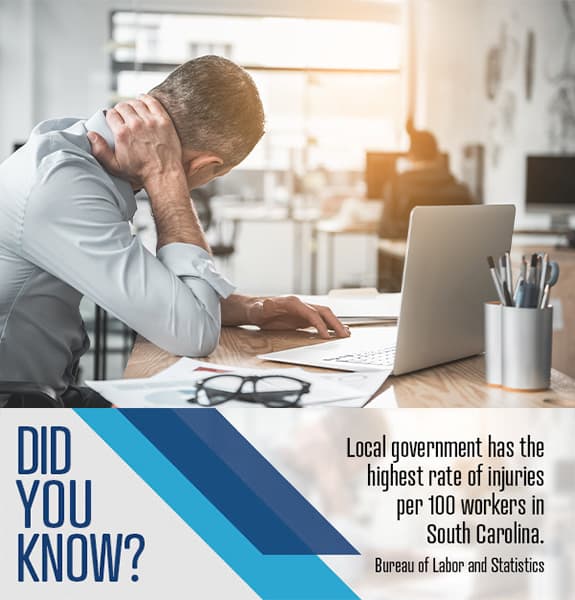
Why do we have Workers’ Compensation?
Prior to the creation of Workers’ Compensation laws across the country, workers in the United States of America did not have much in the way of legal protection when it came to illness, injury, or compensation.
Before 1935, compensation for an on-the-job injury or illness was only possible by utilizing the traditional civil court system, which required injured workers to prove their employer’s negligence was the cause of their illness or injury.
Courtrooms became bogged down by slow-moving cases that were often difficult or impossible to conclusively prove. In the meantime, injured workers struggled to make ends meet while attempting to prove employer negligence despite their employer having all relevant evidence, and employers were unable to predict or plan in a legal system in which inconsistent rulings created massive uncertainty.
The creation of the South Carolina Industrial Commission (which is now known as the South Carolina Workers’ Compensation Commission) in 1935, leveled out the chaos and created an administrative agency designed specifically to handle Workers’ Compensation cases in South Carolina.
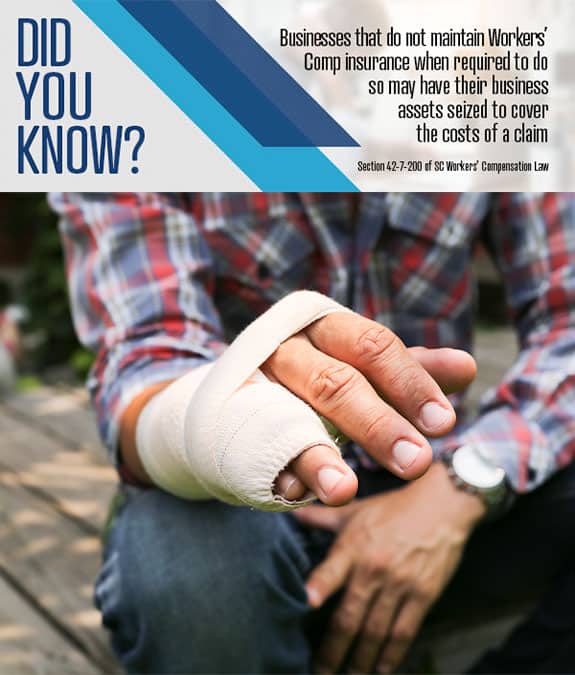
Who is covered by Workers’ Compensation in South Carolina?
With some exceptions, every South Carolina employer and employee is presumed covered by the South Carolina Workers’ Compensation Act.
The exceptions to this rule include:
- South Carolina federal employees
- Workers at a business which employs fewer than four people
- Agricultural employees
- Independent contractors
- Railroad and railway express companies and employees
- Certain real estate salespeople
- “Casual employees”, or workers with employment that is occasional, incidental, and without regularity (SC Legislature, 42-1-360)
South Carolina employers are legally mandated to maintain a level of insurance sufficient to cover Workers’ Compensation benefits.
What types of injuries and illnesses are covered by Workers’ Compensation?
Workers’ Compensation covers many, although not all, job-realted injuries or illnesses that may happen in the workplace. The most common workplace injuries covered by Workers’ Compensation are overexertion injuries (think of a manufacturing employee injuring their back due to heavy lifting), but there are many other types of occupational injuries, too.
While this is a short list of the top ten most common injuries that lead to Workers’ Compensation claims, that are many other types of illness or injury covered under Workers’ Compensation laws, too, including things like illnesses or injuries caused by occupational exposure to harmful chemicals, traumatic brain injuries, occupational hearing loss, and more.
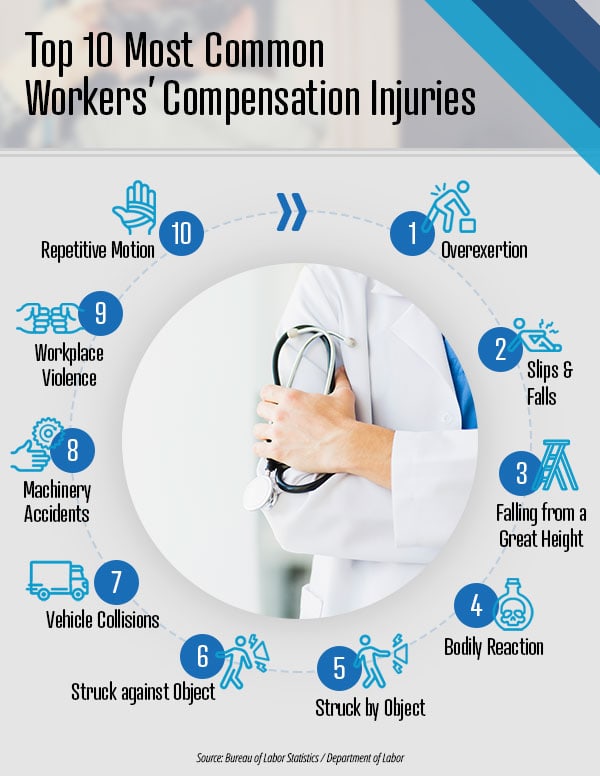
Frequently Asked Questions
Report all injuries at work to your employer immediately and request medical treatment, if needed. If you neglect to report the injury within 90 days of the accident, you may lose your rights to workers’ compensation benefits.
Although you must report the injury within 90 days, you have up to two years to file a claim for benefits. If a worker dies because of work-related injuries, the worker’s dependents, or parents if there are no dependents, must file a claim within two years of the death to claim benefits.
You are entitled to all necessary medical treatment that is related to your work injury and is likely to lessen your disability. Workers’ compensation insurance companies generally pays for surgery, hospitalization, medical supplies, prosthetic devices, and prescriptions. Keep in mind that in order to receive these benefits you must go to the doctor chosen by your employer or its insurance representative.
In short, probably not. Workers’ Compensation laws require the employer to pay for 100% of medical expenses related to the injury, but the law also allows the employer to choose which doctor provides the treatment. It’s possible that your employer will allow you to use your own physician, but it doesn’t happen often.
You are entitled to compensation at the rate of 66 2/3 percent of your average weekly wage based on the four quarters prior to your injury, but no more than the maximum average weekly wage determined each year by the South Carolina Employment Security Commission. If you were working two or more jobs at the time of accident, those wages may be included as part of the average weekly wage and compensation rate.
There is a seven-day waiting period before benefits can be paid. If you are out of work for more than seven days, payments will come from your employer’s insurance representative. If you are out of work for more than 14 days, you will receive compensation even for the first seven days.
You can expect payments to be made directly to you and these should continue until the doctor releases you to return to work.
For many serious workplace injuries, medical treatment will include some level of physical therapy or specialized care, which may require regular travel and fuel costs. Workers’ Compensation will cover travel expenses for medical care related to your workplace illness or injury. SC Workers’ Compensation laws require the employer to reimburse an injured employee at the IRS mileage reimbursement rate for all travel to medical appointments more than 10 miles round trip. You can see the most recent mileage rate charts here on the South Carolina Workers’ Compensation Commission website.
Workers’ Compensation is designed to provide benefits to injured employees without a specific need to prove who was at fault for the accident or injury. While situations such as self-inflicted injuries or injuries that occur as a result of an employee’s intoxication will not be covered, most employees will not need to provide proof that they were not at fault when filing for Workers’ Compensation.
Not necessarily. South Carolina is an employment at will state. This means that, absent a collective bargaining agreement or contract, employment can be terminated at any time without reason, explanation, or warning as long as that reason is not against public policy and/or illegal. The FMLA, or Family Medical Leave Act, provides some limited protections for many South Carolina employees, but not all employees in the state of South Carolina are covered by the FMLA. You can learn more about FMLA eligibility and what is covered by it here.
If you are cleared to return to full work duties, or limited work, by a physician after your recovery, but find that the work is not provided by your employer, you may be entitled to additional temporary disability benefits. These situations are very dependent on specific facts in each unique case, and consultation with a Workers’ Compensation attorney is recommended to determine your best option moving forward.
You must accept light work if it is offered. If you do not accept the light duty offered to you, all compensation may cease as long as you refuse to return to work. You have a right to a hearing if you believe that you are not able to do the work assigned to you.
If you return to light work before you are fully discharged by the doctor at a wage less than you were earning at the time of your original injury, you are entitled to weekly compensation at the rate of the sixty-six and two-thirds (66 2/3%) percent of the difference between your average weekly wage and your new wage.
Does Workers’ Compensation affect Medicare?
Medicare provides health insurance for millions of people within the United States, and is currently the top healthcare coverage provider for individuals 65 and older.
With an aging workforce in which early retirement (defined as retirement prior to the official Social Security ‘retirement age’ of 66 years and 2 months, or 67 for those born after after 1959) is not as common as it once was, individuals are increasingly beginning to navigate the intersections between filing for Workers’ Compensation and relying on Medicare for healthcare coverage.
Workers’ Compensation and Medicare interact in a couple of different ways. Individuals who suffer a severe work injury that results in the injured employee being unable to return to work may end up applying for Social Security Disability. As a result, this creates a “reasonable expectation” that the claimant will be entitled to Medicare.
There is often a waiting period between applying for Social Security Disability and receiving an approval or denial of the Social Security Disability claim. In this intervening time, the injured employee must still seek medical care in order to recover from their injury. Sometimes, the Workers’ Compensation insurance carrier may offer to pay a sum of money to the claimant for the individual’s future medical treatment. This situation is complex and often involves the creation of a separate trust account dedicated to paying for medical treatment that may be covered retroactively by Medicare.
How to file for Workers’ Compensation in South Carolina
Immediately report the injury and file your claim.
The most important thing you can do if you become injured or very ill while on the job is to immediately report the accident, injury, or illness to your supervisor or employer.
Any hesitation or delay in reporting on-the-job injuries could jeopardize the injured worker’s ability to receive Workers’ Compensation benefits.
Injuries must be reported within 90 days of the time the injured worker knew, or should have known, of the injury. Failure to report within this time period may bar employees from bringing a claim under of the Workers’ Compensation Act.
Every eligible workplace should keep the required forms to fill out in the event of a workplace injury, so be sure to fill out the proper documentation. Do not rely on your employer to keep accurate records of your injury and resulting medical needs. Always have copies made to keep at home for your own records.
In the case of a workplace injury where the employer or supervisor refuses to acknowledge the injury, injured workers should speak with Human Resources or seek acknowledgement from someone higher up within the business or organization.
Don’t wait, and don’t trust that everything will be written down accurately by supervisors, Human Resources, or anyone else. Take notes whenever possible and ask for copies of any documentation.
If the employee is unable to receive acknowledgement from anyone within the workplace, speak with legal representation as soon as possible about the problem, document the injury and your attempts to receive acknowledgement.
Formal claims for compensation under the Workers’ Compensation Act must be made within two years after the accident or date of death. Failure to comply with timeliness statutes could negate any possible compensation or award.
In some cases, employers will be actively involved in helping their employees to navigate the medical treatment process using Workers’ Compensation, or they may choose to settle a Workers’ Compensation claim in mediation, and you may not need to go to court to prove your claim.
What Happens at a Workers’ Compensation Hearing?
If a hearing request is filed by an injured worker seeking Workers’ Compensation, the hearing will likely be scheduled within 3-4 months before a Workers’ Compensation Commissioner.
What to Do If Your Workers’ Compensation Claim is Denied
The decision made by the Workers’ Compensation Commissioner may be appealed by either party for review within 14 days. Appeals are heard by a panel of three different WC Commissioners at the Workers’ Compensation Commission’s offices in Columbia, within 4-6 months.
Any further appeals go to the South Carolina Court of Appeals. The eventual decision by the Court of Appeals can only be appealed to the Supreme Court of South Carolina, the highest appellate court within the state.
Even if an initial decision is favorable, what seems at first like a relatively minor injury at first could turn out to be far more severe than initially assumed. In that case, a change of condition review may be initiated by any party within one year of the receipt of final compensation.
Learn more about requesting a change of condition review on our blog by clicking the banner below.
Should you settle your Workers’ Compensation claim?
For injured workers who are denied their initial Workers’ Compensation claim, things can begin to feel hopeless. Don’t give up! A survey by Lawyers.com found that 47% of their readers who had received an award or settlement had initially received a denial.
When it comes to the question of whether or not you should settle your Workers’ Compensation claim, we can’t say ‘yes’ or ‘no’ without knowing all the facts about your unique situation.
There are three potential methods to resolving a compensable workers’ compensation claim after you’ve reached “maximum medical improvement”:
- Have the matter decided by the Workers’ Compensation Commission
- Use a Form 16 to voluntarily resolve your claim while preserving the right to future medical treatment or to re-open the case if needed
- Voluntarily fully and forever resolve your claim, waiving any right to re-open at a later date
In the first case, the Workers’ Compensation Commission will decide what future medical treatment, if any, you are entitled to, and how much you may be entitled to for permanent disability. You’ll have one year from the date you receive payment of permanent disability benefits to re-open the claim on a change of condition if your conditions worsens as a result of your work injury.
You may also voluntarily resolve your claim using a Form 16. While this involves settling your case, it allows you to retain the right to future medical treatment and to re-open the claim in case of a change of condition.
Finally, a claim can also be resolved via a “Clincher”. This is a total settlement, in which the injured worker is compensated for permanent disability, but gives up rights to any and all future medical treatment related to the workplace injury, and give up their right to re-open their claim on a change of condition. Because the clincher involves an injured worker giving up two important rights, insurance companies normally offer a higher settlement amount to a clincher than they do on a Form 16 settlement.
No consideration of settling a Workers’ Compensation claim should be done without speaking to a legal representative who has experience with Workers’ Compensation.
They can speak with you about your situation, go over any records and documentation, and walk you through any and all suggested terms. This way, you’ll know exactly how settling your Workers’ Compensation claim could affect you.
If you’re been injured on the job and you’ve been offered a settlement, you need to ask yourself one very important question:
“Is it more beneficial for me to settle my Workers’ Compensation case, or will it benefit me more to have the matter decided by the Workers’ Compensation Commission?”
Click the banner below to learn more about settling your Workers’ Compensation claim.
How can legal representation help with Workers’ Compensation?
We understand that many injured workers are hesitant to involve legal representation in a Workers’ Compensation claim. After all, it should be as simple as “report your injury, Workers’ Comp insurance covers your costs, return to work”, right?
Unfortunately, in many cases the employer or insurance carrier will deny the initial Workers’ Compensation claim, or attempt to procure a “settlement” at an amount that is far below what the injured worker needs to cover medical treatment and recovery costs. The Workers’ Compensation insurance carrier, and your employer, will be looking out for their own best interests — and those interests may not align with yours.
In this case, you may benefit from involving legal representation.
Legal Representation Can Help Develop Medical, Vocational, and Other Evidence
The most common reason for a denial of a Workers’ Compensation claim is simply a lack of sufficient medical evidence. Even claims that are approved may require additional medical evidence to allow for receipt of all appropriate benefits.
Schedule a consultation to speak with a legal representative. They will speak with you about the details of your situation — how your injury occurred, what medical treatment you have sought, and your employer’s response. They can help you with:
- gathering records
- arranging recommended treatment with certain physicians
- obtaining written medical opinions from your treating physicians or an independent medical examination
- representing you if you are requested to appear and answer questions at a deposition
- conducting their own depositions of medical experts.
Beyond initial medical documents, a legal representative may also be able to help you pull together other types of evidence that help to bolster your case, such as:
- testimony from vocational experts
- statements from friends and family members,
- evidence showing your employer’s history of workplace safety issues or lack of training
An attorney with experience in Workers’ Compensation will have a deep understanding of the complexities of Workers’ Comp cases and will be able to help you understand what evidence is needed to maximize your chances of a favorable outcome.
A Workers’ Compensation attorney can also help to negotiate a favorable settlement with your employer’s insurance company, since they have knowledge and experience that helps them to know what your Workers’ Compensation case may be worth based on the unique factors involved in your illness or injury.
Finally, an attorney with experience in representing injured workers in South Carolina will be able to provide something essential to gaining a favorable outcome in your case: they’ll be dedicated protecting your rights and yours alone.
Insurance companies often use negotiating tactics designed to put immense emotional and financial pressure on injured workers, pushing them to settle for lower amounts or presenting “final offers” that are truly anything but final. On occasion, seemingly favorable settlements are offered that hide potentially serious negative consequences down the road.
With a Workers’ Compensation attorney by your side, you’ll be able to engage in more productive negotiations, ensure that settlement agreements are properly written to protect your future interests, and put together reasonably accurate estimations of future medical expenses to add into settlement amounts. Should you go to trial, you’ll have an attorney by your side who already understands every detail and complexity of your case.
While Workers’ Compensation judges do approve settlements, they are not focused on protecting any specific party in the case.
When you work with a lawyer with experience in Workers’ Compensation, you are working with someone who will dedicate themselves to representing you.
Meet your Workers’ Compensation team


When you work with our Workers’ Compensation attorneys, Marti Bluestein and Allison Sullivan will dedicate themselves to protecting and advancing your rights as someone who became injured or ill on the job.
An occupational illness or injury could throw your world out of balance if you’ve lost your health and your ability to support your family through work. We have compassion for injured workers and their families, and we are determined to battle the insurance companies for the benefits you are entitled to under the law.
Give Bluestein Attorneys a call at (803) 779-7599 or contact us online to request your FREE Workers’ Compensation consultation.




